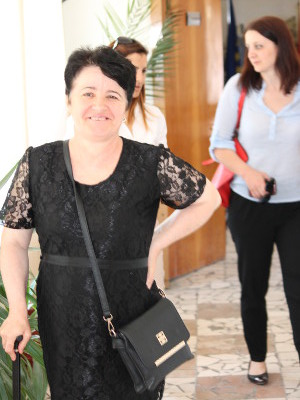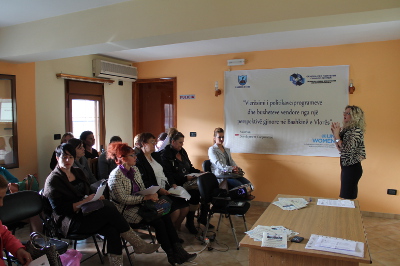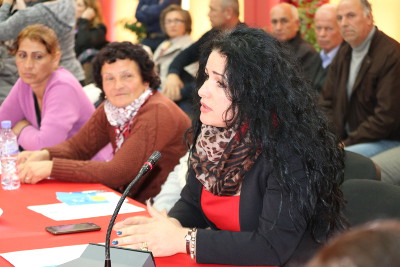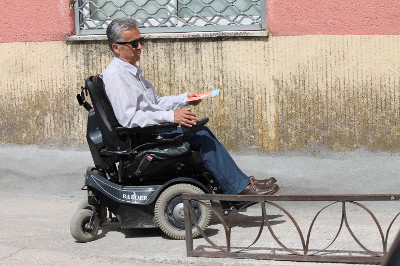Local budgets in Albania respond to community feedback
A UN Women-led campaign results in Albania’s first-ever community budget consultations and brings immediate benefits to those in need.Date:

Engjellushe Saliasi’s life changed unexpectedly when her sister died. She had to take care of her niece and nephew, Maria and Eneo, but lacked funds to provide them with a family and a home.
After she spoke up at a community budget consultation with municipal authorities in Berat, Engjellushe’s fortunes changed for the better.
“After I raised my case as the caregiver of two orphan children during the public consultations for the local budget, the municipality provided us with a house and economic assistance,” said Engjellushe.
The public meetings came about after a UN Women Albania campaign in the southern Albanian cities of Fier, Berat and Përmet for a new approach to local budgeting led to the three cities organizing Albania’s first-ever public consultations with citizens to openly discuss community needs as part of their budget planning.
The campaign is part of UN Women support to the Albanian Government to introduce gender-responsive budgeting, an innovative public policy tool to ensure that public policies and budgets meet national commitments to gender equality and address women and men’s needs equally.
Increasing the participation of women, men and civil society organizations in defining public funding and policy goals is an important part of gender-responsive budgeting.

UN Women partnered with the civil society organizations ANEI and Milieukontakt to organize the campaign, which was supported by the multi-country UN Women regional programme Promoting Gender-Responsive Policies for South East Europe, financed by the Austrian Development Agency, the Swiss Agency for Development and Cooperation and UN Women.
This new approach opened a door for local women and men to share their needs and concerns with local authorities. Around 200-300 people participated in each town, after which municipal authorities adapted their preliminary budgets to reflect community needs.
The municipality of Berat, for example, proposed social housing to qualified vulnerable families and offered a special budget line to support a shelter for women victims of domestic violence.
“Gender-responsive budgeting is an innovation for our municipality. The participation of many women and girls in open budget discussions adds value,” said Ms. Evgjeni Pelivani, Deputy Mayor of Berat.

“Participatory gender-responsive budgeting encouraged many women and girls to contribute to the open local budget discussions, said Ms. Zena Lika, a social worker in Berat.
Mirela, a single mother of two in Fier, was one of them. Saying her monthly salary as a kindergarten teacher made covering groceries and the rent a constant struggle, she asked for the municipality’s support at a public meeting. After a thorough evaluation, she now receives a rent subsidy and has her own house.
“I am a widow and must raise and educate my children alone. On my salary, I couldn’t afford to pay rent,” said Mirela.
Gender-responsive budgeting aims to ensure that local policies, programs and budgets respond to the needs of a wide range of social groups, including women and men, girls and boys and the disabled. Many social groups benefited from the transparent meetings in Fier, Berat and Përmet.

After Ligor, one of 100,000 disabled people living in Albania, addressed at a meeting the lack of disability access in public buildings and services in his hometown, Përmet, municipal authorities quickly acted.
“The municipality subsequently asked all public institutions to build disability access ramps and will follow up with the private sector, banks and other institutions to do the same,” said Ms. Elena Mullaraj, Përmet municipal project manager.
“This small investment is important for us [people with disabilities] to feel independent and be able to easily access public buildings,” said Ligor.
In 2016, UN Women has expanded the campaign to Tirana, Albania’s capital, and to the southern municipalities of Vlora, Saranda and Këlcyra.